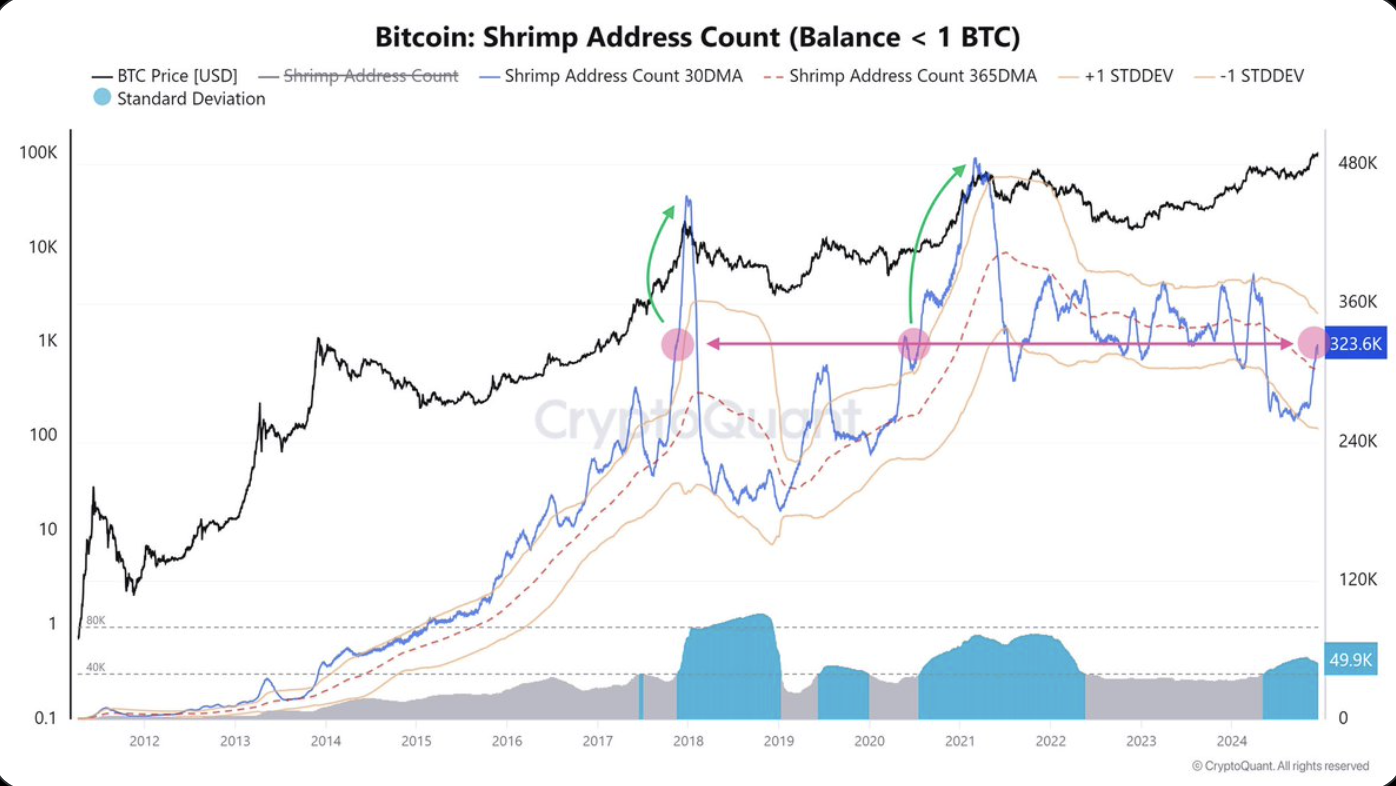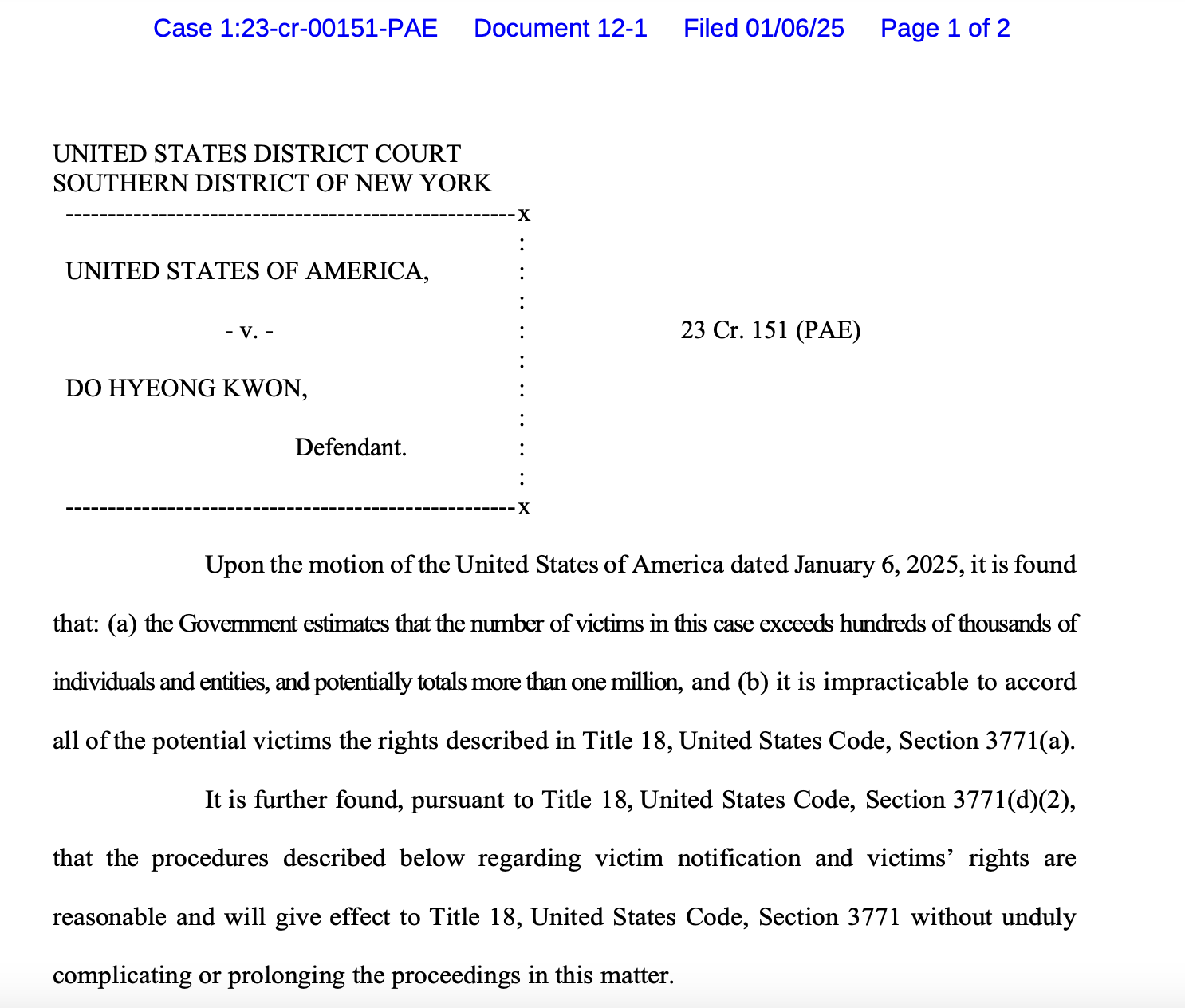As 2024 draws to a close, crypto had a huge year for those who battled both for and against the space. One side championed the tech and wanted to steamroll it forward, while the other side still hasn’t warmed to it or has given crypto a bad rap.
Here, Cointelegraph highlights its seven crypto-supporting “Santas” and seven “Grinches” that have thrown up roadblocks or bottlenecked the progress of crypto this year.
The Santas: Pro-crypto fundamentalists
Donald Trump
United States President-elect Donald Trump emerged as an advocate for Bitcoin (BTC) and crypto this year, proposing to make a Bitcoin reserve and promising the US would be the world’s “crypto capital.”
His speech at Bitcoin 2024 in Nashville was a pivotal moment for his campaign’s crypto policy as he shifted the narrative around the adoption of BTC in political circles.
🔥 TRUMP: “If #Bitcoin is going to the moon, as we say it’s going to the moon, I want America to be the nation that leads the way.” pic.twitter.com/2gIsxOZYXY
— Cointelegraph (@Cointelegraph) November 24, 2024
It was a big U-turn from his take in 2021 when he said Bitcoin was “like a scam” and didn’t “like it because it’s another currency competing against the dollar.”
Nayib Bukele
El Salvador’s President Nayib Bukele championed crypto adoption by continuing the country’s status of using BTC as a legal tender and by building up blockchain within its economy.
A $1.4 billion loan deal with the International Monetary Fund (IMF) saw Bukele’s government agree to back off on some of the Bitcoin activities it has been up to, but the National Bitcoin Office said it’ll “keep buying one Bitcoin a day” and won’t sell any of its holdings.
Hester Peirce
Dubbed “Crypto Mom,” US Securities and Exchange Commission Commissioner Hester Peirce has been praised by the crypto community for her pushback against the agency and her advocacy for clarity on its approach to digital assets.
Peirce has pushed for reforms within the SEC to create policies that support the crypto industry’s long-term growth and for the unshackling of its potential innovations.
Brian Armstrong
Coinbase boss Brian Armstrong has been on the frontlines of crypto advocacy in 2024, engaging with lawmakers on crypto and spinning up support for crypto in the US, UK and Australia through the Stand With Crypto lobbying group.
Coinbase has also been in a legal battle with the SEC and has more recently been trying to galvanize a movement for crypto firms to stop working with law firms that hire former SEC litigators.
Vitalik Buterin
Ethereum co-founder Vitalik Buterin has progressively pushed the boundaries of blockchain capabilities to further advance decentralization and crypto innovation.
From proposing changes to Web3 wallets for improved security and privacy to defending against encryption-breaking quantum computers, Buterin has continuously promoted cryptography in finance and methods to protect it this year.
Senator Cynthia Lummis
Senator Cynthia Lummis has been a vocal supporter of crypto on Capital Hill, proposing the idea of a US government BTC investment strategy and advocating for BTC in mainstream policy discussions.
In November, Lummis said that the US Treasury should convert a portion of its 8,000 tons of gold holdings into BTC to create a strategic reserve of the cryptocurrency.
ICYMI: I just announced I will introduce legislation to establish a strategic Bitcoin reserve! #Bitcoin2024 pic.twitter.com/P36AcdmPFF
— Senator Cynthia Lummis (@SenLummis) July 27, 2024
She told Bloomberg that the conversion’s immediate effect on the US government balance sheet would be “neutral,” instead of spending around $90 billion to purchase the BTC at the market price.
Michael Saylor
MicroStrategy founder and Bitcoin bull Michael Saylor has led the way for how public firms can adopt BTC as their primary treasury reserve asset and catch a huge windfall from it too.
MicroStrategy’s huge Bitcoin stack of 439,000 BTC — over 2% of all BTC — is pushing the firm to eclipse the value of renowned companies like Nike and Starbucks. Saylor also tried to get Microsoft in on the action, which failed, but it was a decent try.
My 3-minute presentation to the $MSFT Board of Directors and @SatyaNadella, articulating why the company should do the right thing and adopt #Bitcoin. pic.twitter.com/aHp91V9Slz
— Michael Saylor⚡️ (@saylor) December 1, 2024
The Grinches: Hamstringing and hindering crypto
The SEC
In 2024, The SEC under Chair Gary Gensler progressively intensified its crackdown on crypto companies through lawsuits and enforcement actions that added to the industry’s uncertainty.
Gensler will step down on Jan. 20, 2025, but after his tenure is over, Gemini co-founder Tyler Winklevoss said that no apology could “undo the damage” Gensler and his SEC have done to the crypto industry.
Britain’s FCA
The United Kingdom’s Financial Conduct Authority has also continued tightening its grip on the crypto industry — like the SEC across the pond — enforcing rules that the local industry says stifles innovation and pushes crypto companies to friendlier jurisdictions.
The FCA recently warned against unauthorized platforms like Solana-based memecoin project Retardio and memecoin generator Pump.fun. Both platforms allegedly provided financial services without proper authorization, and Pump.fun was banned in the UK by the regulator.
Sahil Arora
Referred to as a memecoin mastermind, Sahil Arora gained notoriety in 2024 for launching numerous celebrity-endorsed memecoins and then being loudly denounced by some of those very same celebs.
Source: Caitlyn Jenner
He allegedly collaborated with celebrities like Caitlyn Jenner, Rich the Kid, and Iggy Azalea, persuading them to promote memecoins through social media. He then allegedly sold his share of each of the tokens before prices crashed.
Biden admin’s “Operation Chokepoint 2.0”
Crypto figures have long accused President Joe Biden’s administration of orchestrating to isolate crypto from the banking system in what was dubbed “Operation Chokepoint 2.0.”
More than 30 crypto and tech founders in the US were reportedly denied access to banking services, according to Andreessen Horowitz co-founder Marc Andreessen.
🇺🇸 NEW: Marc Andreessen on crypto and tech firms facing US sanctions and de-banking. pic.twitter.com/xgXz9dWgyu
— Cointelegraph (@Cointelegraph) November 28, 2024
Coinbase’s Armstrong added his voice to the accusations on Nov. 27, calling it “one of the most unethical and un-American” things to happen.
Dark Angels ransomware group
The Dark Angels ransomware group hit the crypto industry in 2024 hard enough to be considered one of the most prolific cybercriminal organizations the industry has seen.
According to a Chainalysis report, the group recorded the largest ransom payment of $75 million in BTC in July, marking an astonishing 96% increase in maximum ransomware payments from 2023.
The group targeted centralized crypto exchanges, exploiting rising crypto prices and increased trading volumes for maximum impact.
Pig butchering scammers
Pig butchering scams have become one of the most prevalent forms of crypto-related fraud, with victims globally losing over $75 billion.
These scams involve criminals cultivating long-term, trust-based relationships online and eventually coercing victims into fake crypto investment schemes.
Related: 2025 will be the year of AI agents, Web3 execs say
On Dec. 10, almost 800 people were arrested in a raid in Lagos, Nigeria, suspected of participating in the crimes.
State-sponsored cybercrime
State-sponsored cybercrime surged this year, with the notorious North Korea-linked Lazarus Group moving over $1 million in BTC in January after a bout of inactivity.
The Lazarus Group has been linked to more than $3 billion in crypto theft since 2017, including the massive $600 million Ronin Bridge hack in 2022.
An Elliptic 2024 report also revealed that artificial intelligence-powered tools have fueled state-sponsored cybercrime, enabling deepfake promotions, ransomware attacks and scams of other kinds.
With champions and challengers on either side of the crypto industry, 2024 has been a long game of tug-of-war between innovators, regulators, scammers and states.
The crypto space now prepares for 2025, largely spurred on by the promise of a crypto-friendly administration in the US and the hope of continued institutional adoption.
Magazine: 5 real use cases for useless memecoins



